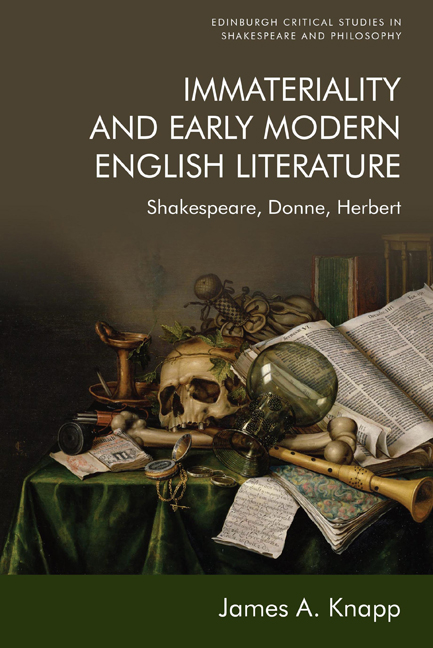7 - ‘A Brittle Crazy Glass’: George Herbert and the Experience of the Divine
Published online by Cambridge University Press: 10 October 2020
Summary
Crazy: 1. Full of cracks or flaws; damaged, impaired, unsound; liable to break or fall to pieces; frail, ‘shaky’.
(Now usually of ships, buildings, etc.)
OED, ‘Crazy’,Like Donne, George Herbert engaged with the distance between his earthly experience and the divine object of his desire through poetry animated by the distinction between the material and immaterial. In Joseph Summers's account, ‘It was by means of form that the material could be used in the service of the spiritual, that the senses could be properly employed for the glorification of God.’ Ostensibly written in the same year that Donne composed his earliest Holy Sonnets and a year before the publication of his First Anniversary, Herbert's ‘New Year's Sonnets’ argue that poets ought to turn from human to divine love. Writing in the aftermath of the Elizabethan sonnet craze, the young poet asks, ‘Cannot thy love / Heighten a spirit to sound out thy praise / As well as any she?’ (6–8). While the suggestion that poets turn their attention away from the exhausted subject of Petrarchan courtly love is unsurprising at this moment in English literary history, Herbert's early devotion to religious poetry, and the specific terms in which he announces his intentions, foreshadow a poetic career in which the productive tension between material experience and the desire for the immaterial will be central.
Herbert's sequence of Latin poems on the Passion, Passio Discerpta, offers another example of the devotional poet's early meditation on physicality and embodiment. Through a series of short poems that focus on the material particularities of the Passion – the crown of thorns, the cross, the nails, the bloody sweat, the whip and so forth – Herbert gives voice to the materiality of the world felt in Christ's suffering. Edmund Miller notes that the poems’ ‘Baroque tendency to dwell in the sensuous’ is unlike what we find elsewhere in Herbert's poetry. Yet the emphasis on the sensuous elements of Christ's suffering plays an important role in the overall message of the sequence.
- Type
- Chapter
- Information
- Immateriality and Early Modern English LiteratureShakespeare, Donne, Herbert, pp. 223 - 284Publisher: Edinburgh University PressPrint publication year: 2020



